Latin America’s Rightward Shift Continues In Honduras
Honduras’ newly elected president, Nasry Asfura of the conservative National Party, was sworn in on January 27, 2026. The election, held on November...
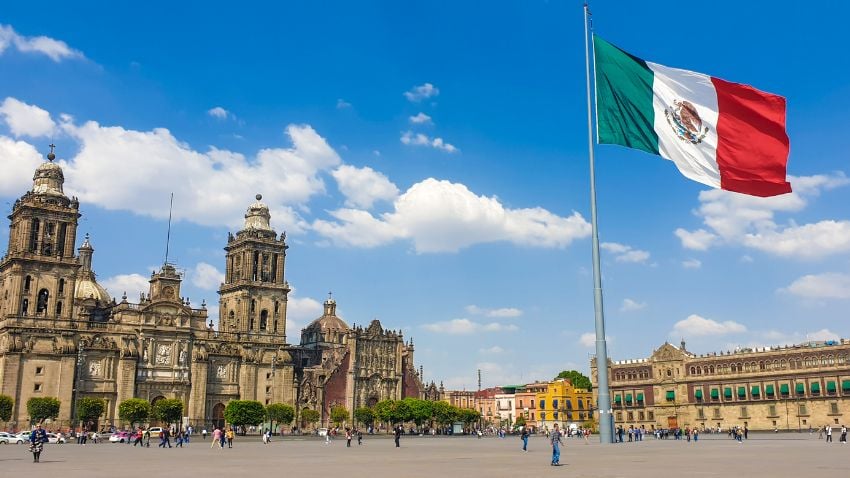
Mexico has made obtaining Permanent Residency a streamlined process, making it easier for people from various countries to settle down and enjoy the vibrant culture and lifestyle. The immigration office and consulates play a crucial role in this endeavor, providing valuable information about the rules and procedures involved. One of the significant differences lies in the reduced fees, which have made the whole experience more accessible and affordable for applicants.
Mexico offers many advantages to expats. The cost of living is extremely low relative to first-world standards, so you can save a lot of money even while enjoying a pretty high standard of living. The food is incredible, and you can enjoy the convenience and deliciousness of taco stands and inexpensive restaurants.
Eating out is very affordable. You could easily eat out every meal without breaking even a modest budget, should you be so inclined. And the Mexican diet can consist of many healthy foods if you make careful choices. Mexican residents are well known for their hospitality and friendliness with foreigners, so it shouldn't be too hard for you to make friends with locals and residents.
Mexico is close to many other great destinations, like the Caribbean, the United States, and South America and is a center for tourists. Mexico City is a central transport hub that many flights go through, and domestic travel is inexpensive. Spanish is a great language to learn, relatively easy to pick up and is one of the most commonly spoken languages as a native tongue worldwide.
Mexico has many great coastal regions that are both safe and excellent places to stay and many beach options. Just make sure to bring your sunscreen! Mexico also offers many options for visas for expats and foreigners. Below we will discuss these different visas and how to apply for them.
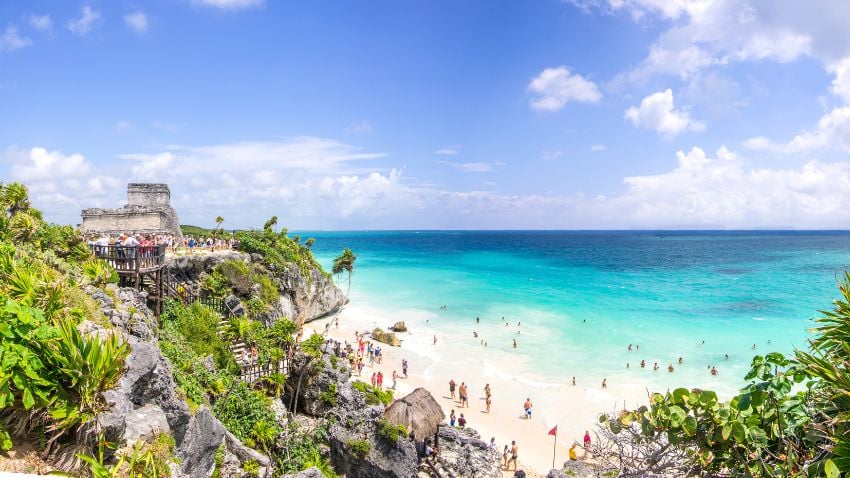
Obtaining your Permanent Residency, you and your family can enjoy the beauty Tulum beach, in Mexico
There are two general options for immigration permits in Mexico: immigrant and non-immigrant. A non-immigrant permit is for a short duration. Say you want to go to the Mexican Grand Prix; this is the permit you will go for. Then there is the immigrant permit; these are for a long-term stay, and I will explain them to you.
The first step in establishing permanent residency in Mexico is to apply for it at the Mexican consulate, embassy, or immigration office in your home country. There are also specific requirements before establishing residency in Mexico and obtaining your permanent resident card.
One way to qualify is if you have a family member in Mexico; another is if you find employment there. Students who are attending university in Mexico qualify for temporary residency. Individuals who have lived in Mexico temporarily for the duration of four years can then apply for a permanent resident card.
With the proper documentation and address verification, individuals can kickstart the procedure to obtain their resident card. A couple or even a single person can benefit from this simplified approach to acquiring Permanent Residency, allowing them to work and enjoy the country's many opportunities and privileges.
When applying for Mexican permanent residency at the consulate, ensure you bring a visa application form duly completed and signed, as well as your passport and documents. If you are applying from a third country (not your home country), you will also need documents proving the legality of your entry into that third country. And you must also bring a 3.9 cm x 3.1 cm photo. All of this will be brought to the nearest embassy or consulate. For more details, advice, or questions, please click here to talk to me.
Related content: The Basics Of How To Get A Second Passport Or A Second Residency
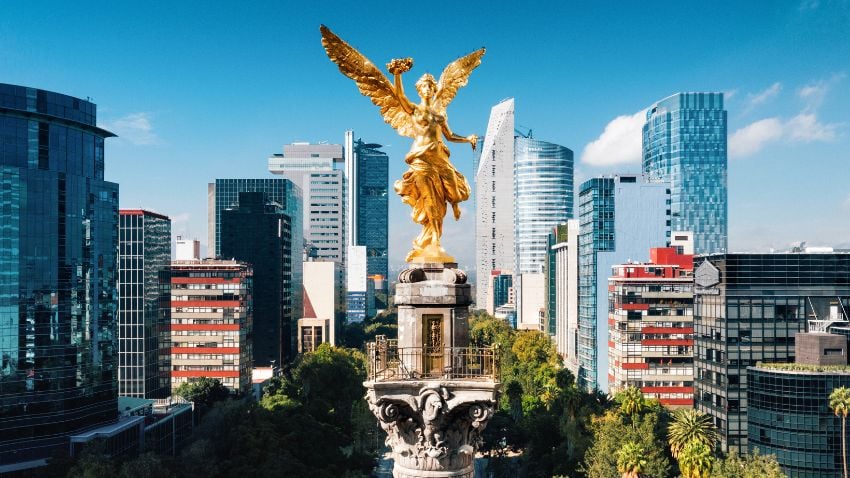
Once in Mexico, applicants can access the necessary services to initiate their residency application and see the Independence Monument in Mexico City
Securing permanent residency in Mexico has become remarkably streamlined, making the process more accessible and efficient. The criteria for obtaining permanent residency encompass various avenues, allowing individuals to choose the path that best suits their circumstances. Whether through financial means, family ties, or specialized skills, the diverse types of residency options cater to a broad spectrum of applicants.
There are different requirements based on the reason why you are applying for permanent residency. If you are applying on the basis of family member unity, then you should bring your birth certificate (both the original and a photocopy), as well as documents demonstrating the Mexican citizenship of your family member.
You can also apply if you have ties to foreigners with a permanent resident card, this can include marriage, and you should bring, include your documents again. In the case of this latter form of application, you must also demonstrate economic solvency in the form of a bank account with a balance of at least $1000 USD every month over the last twelve months.
For those who are applying as retirees, it is important to include either proof of your pension or a bank account with an average balance of at least $180,000 over the past 12 months.
Permanent visa applicants must demonstrate that they have a monthly income of between $4,300 USD and $4,500 USD over the previous six months. Or, same as with a retiree, show a balance of $180,000 USD over the past 12 months.
One key factor that contributes to a smoother application is the clarity of financial documentation, with bank statements playing a crucial role in demonstrating financial stability. Meeting the specified financial criteria ensures a solid foundation for the residency application, providing authorities with the assurance of economic self-sufficiency.
The length of the residency process varies depending on the chosen category, but overall, the system has been designed to minimize bureaucratic delays. Once approved, applicants attain a permanent resident status, offering stability and the freedom to live and work in Mexico without the need for constant renewals.
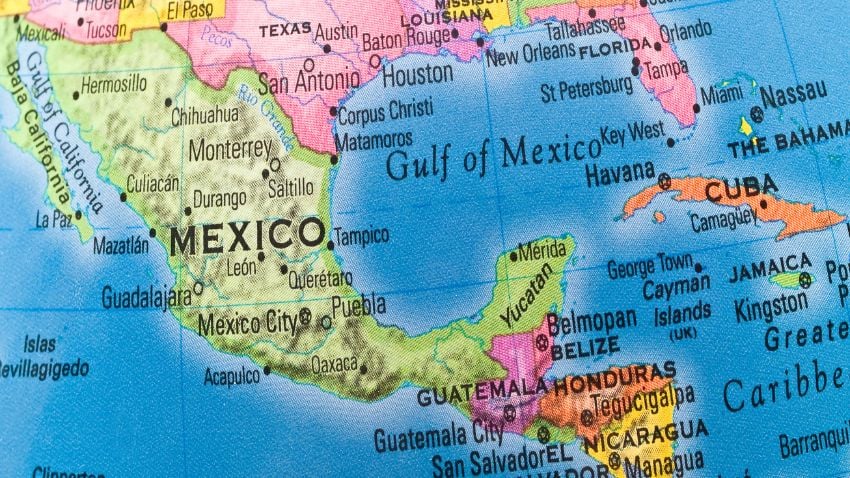
By establishing permanent residence, you can start the process of becoming a Mexican citizen
Any family member with Mexican citizenship or foreigners with a permanent resident card is recognized as a cause for a permanent residency visa as long as they are part of your direct family like:
Child;
Parent;
Spouse or common-law partner;
Sibling.
Amidst the sun, sand, and waves, Mexico offers a stunning natural backdrop for those who appreciate water-related activities such as swimming and fishing. Beyond the breathtaking beaches, the country's rich cultural heritage beckons newcomers to immerse themselves in its music and dance traditions. The lively and diverse culture of Mexico provides a welcoming atmosphere for all residents, making the transition to a new life smoother and more enjoyable.
Of course, the most obvious benefit of a Mexican permanent resident card is that you can stay in Mexico indefinitely and give any family member permanent residency, but there are many other benefits. Essentially, by establishing permanent residence, you can start the process of becoming a Mexican citizen. The only thing you will not have permission to do is vote in their elections. But you will possess all the other rights Mexicans enjoy, such as the right to work and the right to access Mexico at will.
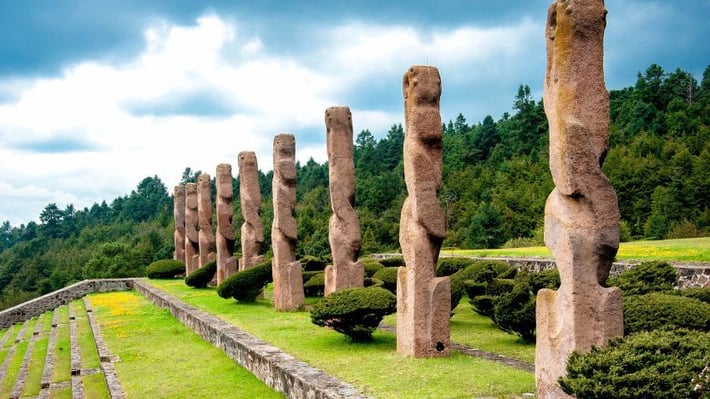
Otomí Ceremonial Center, Temoaya, Mexico
You don't have to limit yourself to the permanent resident route. You can also apply to become a temporary resident of Mexico. You will need to demonstrate financial solvency to qualify for this visa, either in the form of an income of $2,600 USD a month or savings in excess of $43,000 USD. Just as in the case of permanent residency, you must apply at the Mexican consulate in your home country or in a third country if you are travelling when you decide you want to apply. Alternatively, you can apply on the basis of having a job in Mexico, in which case the company that is hiring you would submit paperwork on your behalf demonstrating that you have employment.
A temporary residency is valid for the duration of one year after it is granted but can be renewed three times for a total of four years of residency. Then, once you have exhausted your limit of four temporary years, you can apply for permanent residency.
Students who are studying in Mexico can also qualify for temporary residency. They must also be able to demonstrate either their financial means or, if they are under 25, then the ability and desire of their parents to extend economic support to them and their studies. A scholarship can also suffice for these purposes. The financial resources or scholarship in question must be of at least a value of 17,000 Mexican pesos ($858 USD).
Both property and shareholders in a Mexican business can also apply for temporary residence on the basis of their properties or company ownership. In this case, the property's value in question must be at least 6,840,000 Mexican pesos ($345,365 USD). Another option for temporary residence is if you are going there to volunteer, like if you are working with a church group or non-profit organization on an unsalaried basis. In that case, you must prove financial means in the amount of at least 855,000 Mexican pesos ($43,170 USD), either in the form of a checking balance or statements of investments like a brokerage account.
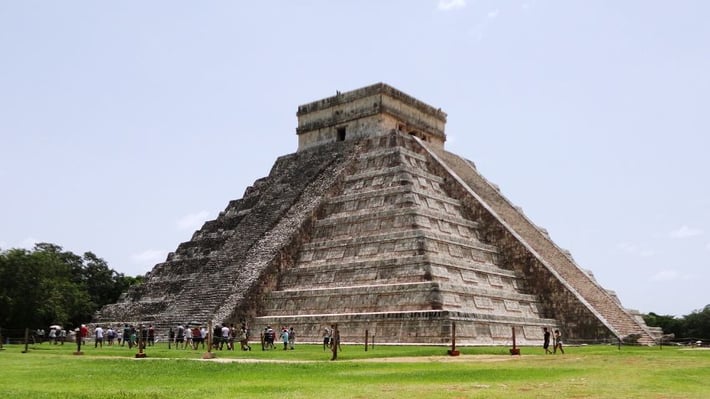
The lively and diverse culture of Mexico provides a welcoming atmosphere for all residents and you can check the Pyramid of Kukulkán, in Chichen Itza
Mexico is a beautiful country for tourists, and its residents and people are very welcoming of foreigners. Outside of tourism, Mexico also offers many different visas for residency, from temporary to permanent and even citizenship. Similar to Mexico's cost of living, their residency programs also have very low financial requirements. While living in Mexico, you will never be bored; there are countless options for places to see and explore.
Mexico's revamped Permanent Residency process has become a testament to its commitment to attracting diverse talents and creating an inclusive society. By minimizing bureaucratic hurdles and offering easier access to services, the country has opened its doors to people from around the world. Embracing the new residents with warmth and enriching them with its fascinating culture, Mexico ensures that those who choose to call it home can build a fulfilling life amid the sun-kissed landscapes and lively rhythms.
If you want the best intel from the expat world, including profitable offshore opportunities, little-known tax-saving strategies, and hard-won insights on immigration, passports, and Plan-B residencies, all delivered to your inbox every single week, then join our daily correspondence, EMS Pulse®. Currently enjoyed by over 84,000 expats and expat-hopefuls worldwide. Fill in the form below to join our newsletter free:

Written by Mikkel Thorup
Mikkel Thorup is the world’s most sought-after expat consultant. He focuses on helping high-net-worth private clients to legally mitigate tax liabilities, obtain a second residency and citizenship, and assemble a portfolio of foreign investments including international real estate, timber plantations, agricultural land and other hard-money tangible assets. Mikkel is the Founder and CEO at Expat Money®, a private consulting firm started in 2017. He hosts the popular weekly podcast, the Expat Money Show, and wrote the definitive #1-Best Selling book Expat Secrets - How To Pay Zero Taxes, Live Overseas And Make Giant Piles Of Money, and his second book: Expats Guide On Moving To Mexico.

Honduras’ newly elected president, Nasry Asfura of the conservative National Party, was sworn in on January 27, 2026. The election, held on November...

For a growing number of Americans, cost-of-living math no longer works. Housing feels harder to reach, everyday costs keep climbing, and long-term...
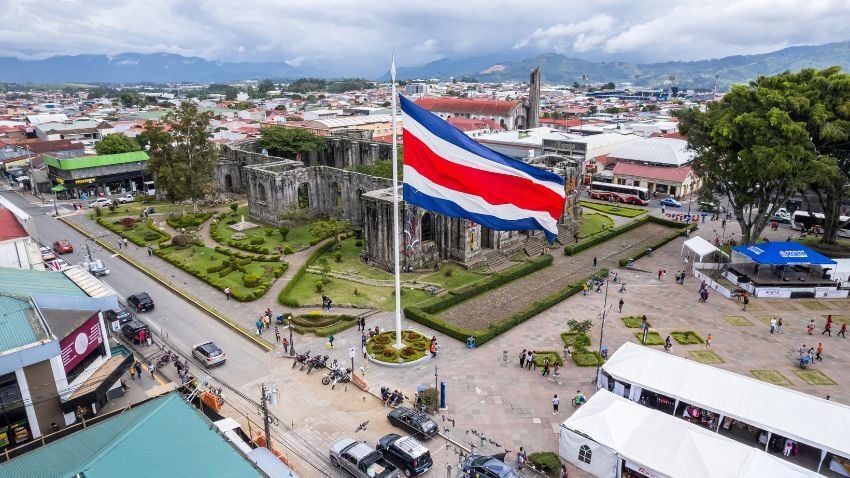
Costa Rica has become one of the most popular expat and digital nomad destinations in Latin America, known for its natural beauty, relaxed lifestyle,...